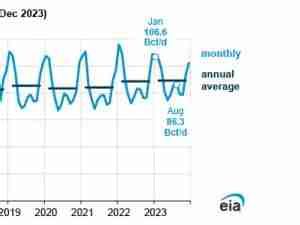Pipeline overbuild forces company executives to seek new opportunities
By: Reuters | Aug 10 2015 at 07:00 AM | Maritime
NEW YORK - A doubling of pipeline capacity in one of the most prolific U.S. shale plays may have gone overboard in its rush to move oil to market, top pipeline company executives said during earnings announcements over the past week.
With more than 1 million barrels per day of additional pipeline capacity moving oil from the Permian Basin of West Texas added since early 2014, companies dependent on new projects to drive revenue growth are now faced with a limit. The buildout has also caused some temporary inbalances in spot prices, traders say, as pipelines flood Houston-area refiners with surplus crude.
The race for new and bigger pipelines to ease bottlenecks has led to a slew of new projects coming online through 2017, even as output wanes with oil prices down nearly 60 percent from a year ago on a global supply glut.
Plains All American Pipeline, one of the biggest players with a long string of Permian projects, reduced its growth guidance and said 2016 could be flat on lower-than- expected pipeline volumes.
The outlook reflects a “more conservative assessment of the impact that aggressive competition from overbuilt infrastructure in several areas” could have on Plains’ profits and volumes, Chief Executive Greg Armstrong told analysts this week.
Magellan Midstream Partners, which runs two major Texas and Colorado oil pipelines in joint ventures with Plains, told analysts on Thursday the company is “hard-pressed” to see whether more long-haul crude pipelines are needed other than those already under construction.
The buildout has impacted spot pricing with the premium for West Texas Intermediate crude at Midland, Texas <WTC-WTM> trading at a near record to that of Cushing, Oklahoma. WTI-Midland typically trades at a discount to Cushing.
Sunoco Logistics Partners executives said that Permian growth may be stunted for now. “We recognize that in the short term, the Permian does have enough takeaway capacity,” they said.
Since early 2014, the Permian has added a lot of capacity, including Sunoco Logistics’ Permian Express II, Magellan’s BridgeTex and Longhorn expansion and Plains’ Cactus.
Traditional midstream players are largely unaffected by price swings because they don’t buy or sell oil moved by their infrastructure. However, the price decline hurts prospects for volume growth, Raymond James analyst Darren Horowitz said in a note.
“The continued weakness in the oil markets, and consequently reduced prospects for near-term volume growth, presents a headwind across the midstream sector,” he said.








